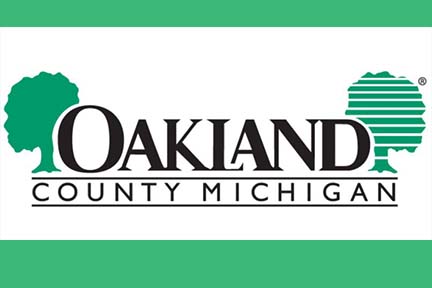Written Saturday Februray 15th at 10:25 AM

Boys
1. Groves 15-5: Falcons locked into the two seed, on a collision course with Birmingham Brother Rice.
2. Avondale 14-7: Holding Clarkston to 33 points is impressive, always hard to beat a team three times.
3. Oxford 19-1: Wildcats are on a collision course with Grand Blanc.
4. Farmington 15-5: Falcons could see arch rival North Farmington in the future.
5. Clarkston 14-6: Wolves are in deep trouble heading into the postseason.
6. Lake Orion 13-7: Dragons got the best draw with the Waterford schools looming.
7. Rochester 16-5: Falcons have home court and locked into the top seed.
8. Royal Oak 12-7: Ravens look poised to take the top seed but beware of Berkley.
9. Troy 10-11: Colts looking at rematch with arch rival Troy Athens.
10. North Farmington 11-9: Raiders fortunate to get the two seed.
11. Ferndale 8-13: Eagles staring at Detroit Pershing before Warren Lincoln.
12. Adams 6-14: Could the Highlanders get the two seed with all the struggles they had.
13. Bloomfield Hills 11-9: Blackhawks/Maples rematch should be really interesting.
14. West Bloomfield 5-14: Lakers on a collision course with Walled Lake Central, if they win it’s Orchard Lake St. Marys.
15. Stoney Creek 9-10: Cougars are in a very delicate situation with the two seed in the balance.
16. Troy Athens 6-14: Red Hawks/Colts part three, neutral site could be really interesting.
17. Pontiac 11-8: Phoenix have to go through Birmingham Detroit Country Day and Pontiac Notre Dame Prep at some point this postseason.
18. Ferndale University 9-10: Eagles looking at Hazel Park before Warren Lincoln looms.
19. Oak Park 5-9: Knights looking at Southfield Arts and Tech if they win Birmingham Brother Rice looms.
20. Southfield Arts and Tech 6-14: Warriors looking at Oak Park if they win Birmingham Brother Rice looms.
21. Seaholm 2-17: Maples could make amends in the postseason.
22. Berkley 4-15: Bears have a tough stretch looming.
23. Harper Woods 3-13: Pioneers looking at Eastpointe before seeing Center Line if they win.
Girls
1. Clarkston 13-6: Wolves depth being displayed as we speak.
2. Rochester 15-3: Alice Max has really carried the Falcons to the White crown.
3. Avondale 15-3: Amaria Daniel has been playing really good basketball lately.
4. Stoney Creek 12-5: Cougars need to put Clarkston loss behind them and move on.
5. West Bloomfield 11-7: Lakers bouncing back after a tough one to Stoney Creek.
6. Lake Orion 11-9: Dragons need a break after a rough week.
7. Oxford 6-13: Wildcats playing hard despite record.
8. Southfield Arts and Tech 11-7: Warriors have not been consistent lately.
9. Berkley 12-7: Bears looking forward to the postseason.
10. Ferndale 6-12: Eagles balance is the key if they want to make a run.
11. Seaholm 11-8: Maples are 2-6 since their loss to Rochester on January 23rd, not good.
12. Bloomfield Hills 7-9: Brianna Young has been playing well lately.
13. Groves 5-12: Harlem Simpson is the real deal enough said.
14. Royal Oak 8-9: Ravens are a Jekyll and Hyde right now.
15. Troy 6-11: Colts have been a Jekyll and Hyde lately.
16. Harper Woods 7-7: Pioneers starting to bounce back after rough start.
17. Adams 7-10: Highlanders injuries starting to catch up on them.
18. Troy Athens 7-11: Red Hawks have been competitive.
19. Farmington 7-11: Falcons well on their way to win the Gold.
20. North Farmington 5-12: 20 point win over Hazel Park is a start.
21. Pontiac 8-5: Phoenix getting ready for the postseason.
22. Ferndale University 7-7: It wasn’t a good week for the Eagles.
23. Oak Park 0-11: 18 points in two games is not a good sign.







